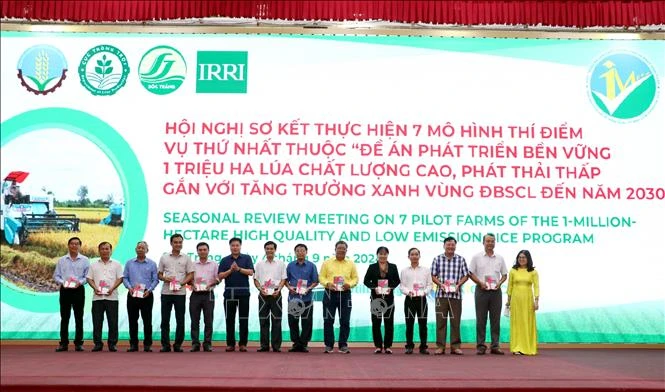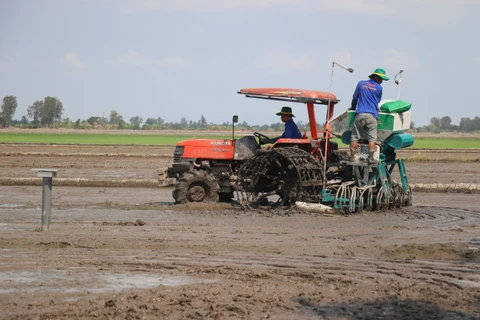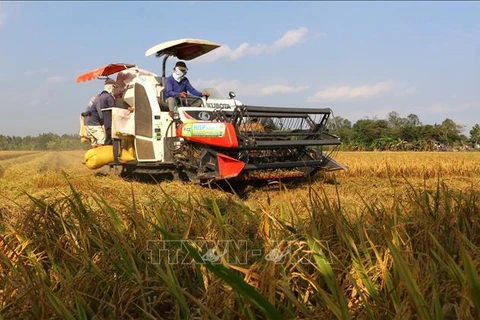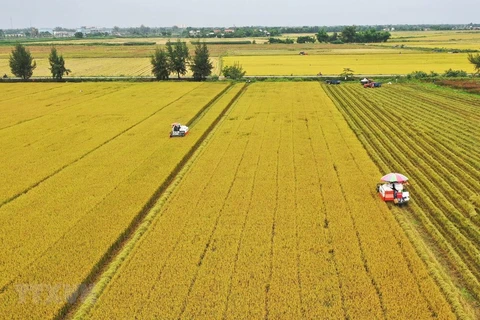
Soc Trang (VNA) – Sustainable rice farming models in Mekong Delta localities have delivered promising results, taking strides toward more eco-friendly and profitable agriculture, the Ministry of Agriculture and Rural Development told a meeting in Soc Trang province on September 4.
The seven pilot models, carried out under a plan on sustainably developing 1 million ha of high-quality and low-emission rice cultivation in the region, are underway in Kien Giang, Soc Trang, Tra Vinh and Dong Thap provinces, along with Can Tho city.
Results from the recent summer-autumn crop reveal a surge in productivity. The models in Can Tho and Tra Vinh recorded yields of 6.4 and 6.1 tonnes per ha, respectively, notably surpassing those from conventional farming practices by 700kg and 200kg her ha. In Tra Vinh and Soc Trang, ongoing harvests of two other models project yields of over 6.4 tonnes per ha, 460kg per ha higher than the output of conventional practices.
For the autumn-winter crop, over 140 ha have already been sown. Early projections suggest an average yield exceeding 6.3 tonnes per ha, with harvests expected from mid-September through the end of October.
Higher productivity is accompanied by a reduction in greenhouse gas emissions. The Can Tho model recorded 5-12 tonnes of CO2 equivalent slashed per ha; the Soc Trang model released just over 9.5 tonnes of CO2 equivalent per ha each crop, compared to 13.5 tonnes seen in conventional practices; while the emissions in the two models of Tra Vinh stood at 7.6 tonnes of CO2 equivalent per ha each crop, compared to 13 tonnes reported in conventional practices.
Deputy Minister of Agriculture and Rural Development Tran Thanh Nam noted that the scheme has proven successful in lowering production costs by 20-30%, leading to higher profits for farmers, and reducing greenhouse gas emissions.
He underlined the importance of scaling up these innovative practices, urging for increased mechanisation and stronger support for farmers, cooperatives, and businesses along the agricultural value chain. The goal is to replicate the model for future rice crops to secure increased productivity and a corresponding reduction in greenhouse gases./.






















